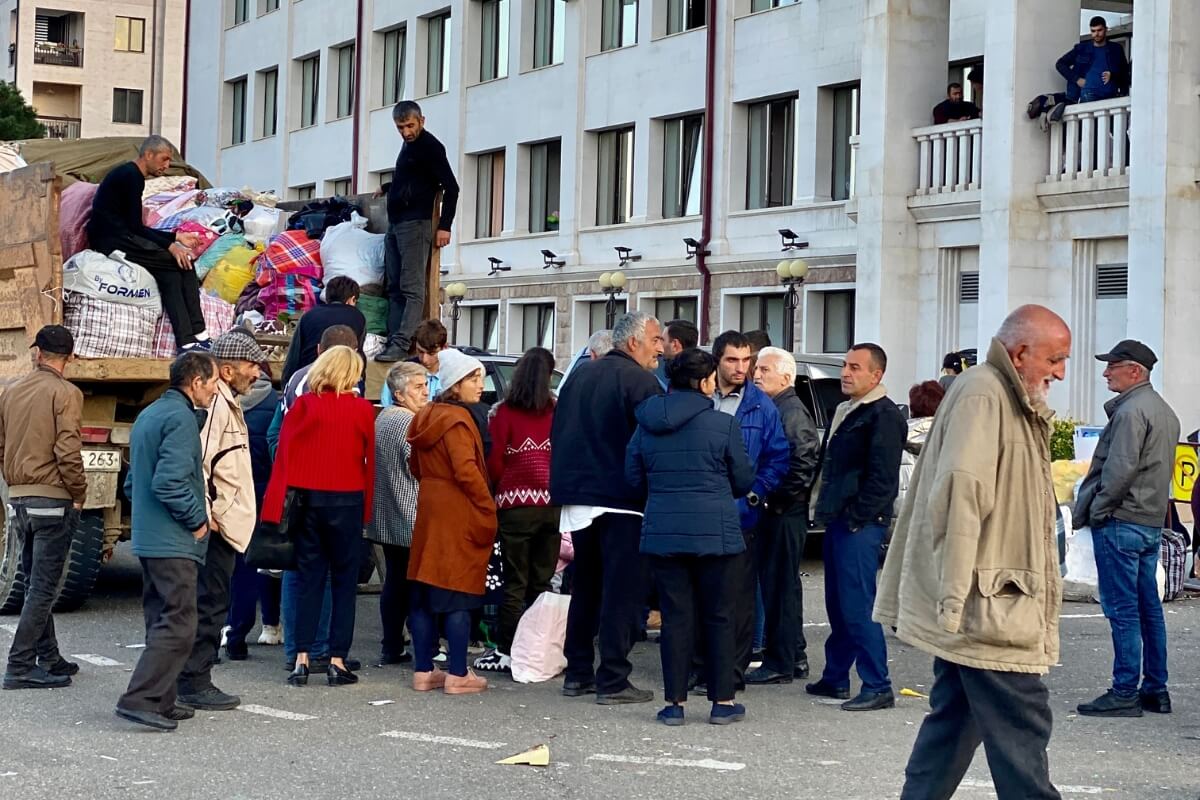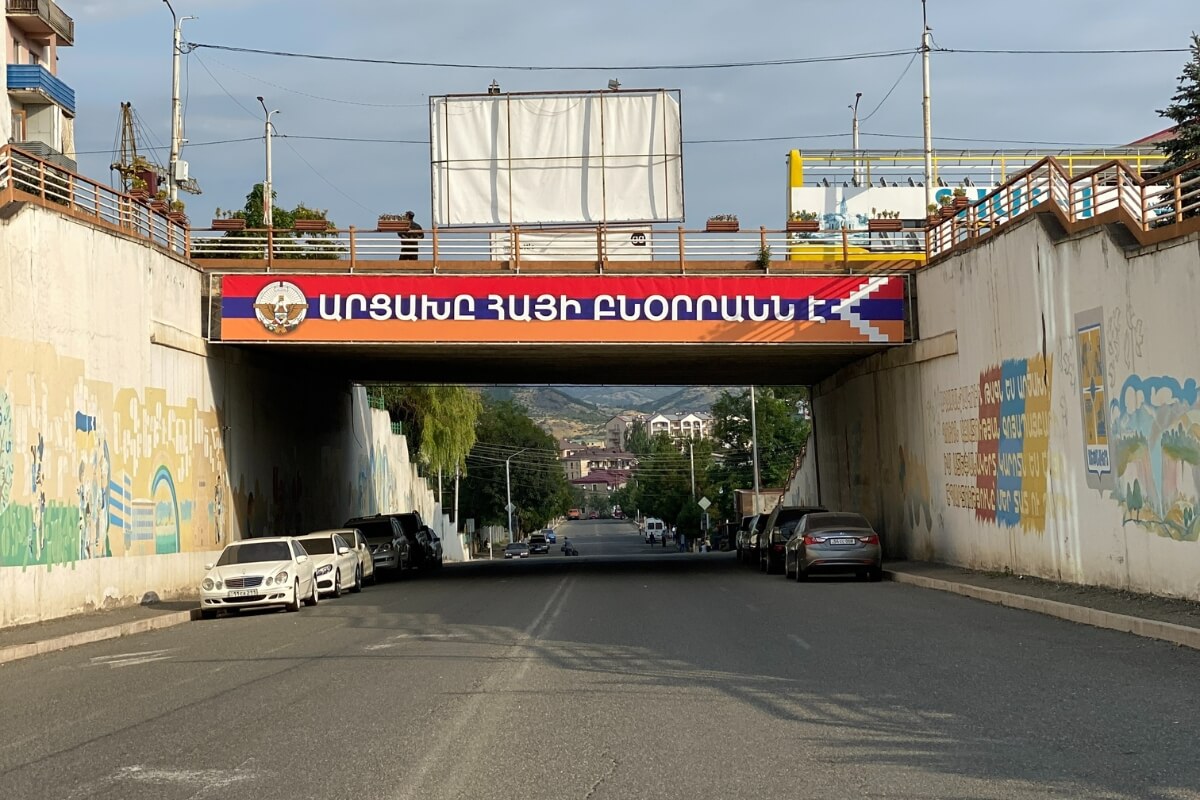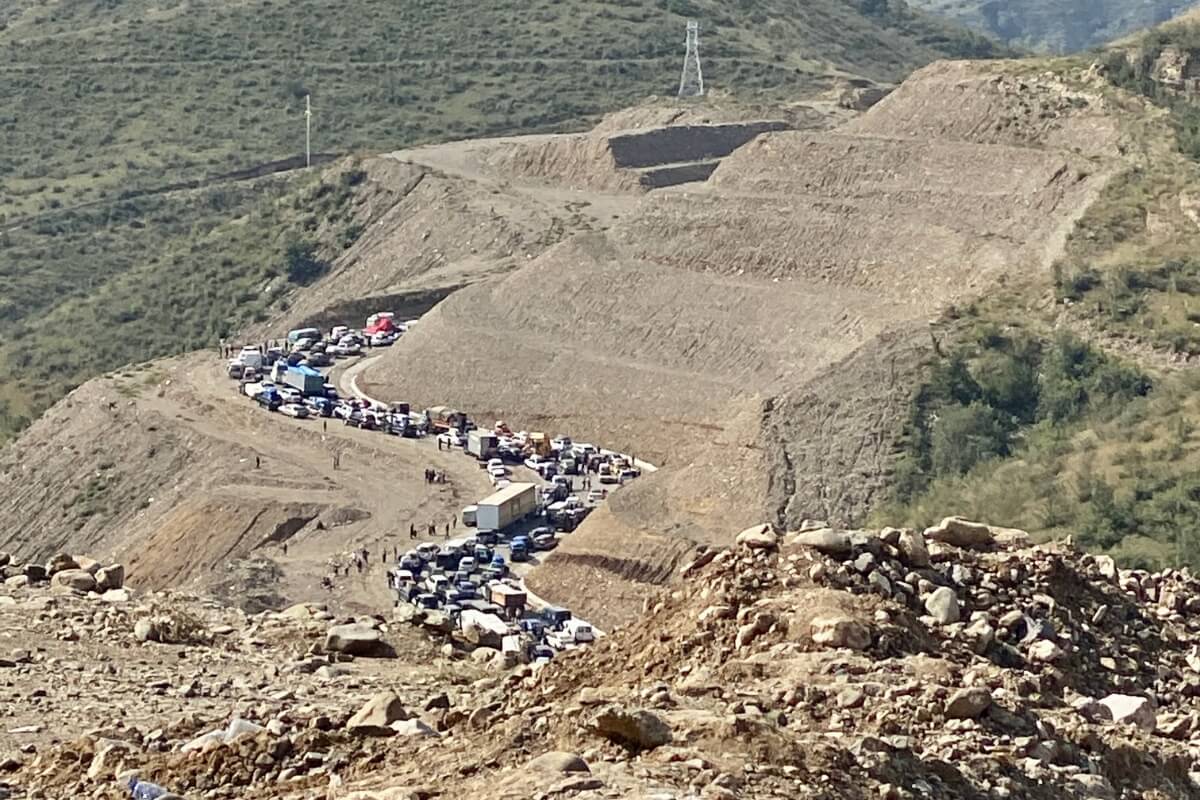My Road
08.02.2024
5 min read
Repats for Artsakh
Mary Asatryan: A Voice for Artsakh's Displaced and Vulnerable
-webp(85)-o(jpg).webp?token=0550f35b1307557b8428bd071f8a8860)
Amidst the ongoing humanitarian crisis in Artsakh, a remarkable individual, Mary Asatryan, emerges as a symbol of unwavering dedication and love for her homeland. Since our last interview in February 2023, the situation in Artsakh has taken a tragic turn, with Azerbaijan launching a full-scale attack leading to the ethnic cleansing of the Armenian population. This crisis has displaced over 100,000 people and unjustly imprisoned former and current leaders of Artsakh on trumped-up charges. Amidst these dire circumstances, Mary Asatryan's resilience and commitment to Artsakh shine as a beacon of hope.

A Portrait of Resilience in Artsakh
Mary, a diasporan Armenian from Moscow, repatriated to Artsakh in September 2022 via the iGorts program. Her decision to move to Artsakh was born out of a deep sense of responsibility and love for her homeland. After completing her Master's studies in Belgium and traveling to nearly 30 countries for scientific conferences and events, Mary faced a pivotal moment in her life. The Artsakh war of 2020 coincided with her return to Moscow, leading her to realize that the time for action had come.
"The war decided for me; I am moving to Artsakh,” she reflects.
Mary's journey was fueled by a profound love for Artsakh, a desire to be helpful on the ground, and a belief in the importance of work done for the homeland in peacetime. She emphasized that every Armenian should feel responsible for the future of their homeland, regardless of their place of residence, roots, or background. "When, if not now? Who, if not us?" became her guiding philosophy.

Mary says it is an honor for her to serve as the assistant to the Human Rights Defender (Ombudsman) of Artsakh, Gegham Stepanyan, especially during these difficult times for the nation. She is actively engaged in raising awareness about the human rights situation in Artsakh and the regular violations committed by Azerbaijan, which she stresses deserves constant attention from the international community.
Preserving the Community is Paramount
As the Armenian nation faces one of its worst humanitarian crises in recent memory, Mary emphasizes the importance of addressing the multifaceted needs of Artsakh's people, which range from providing permanent housing to offering psychological support. While individual volunteering and support are invaluable, there is a crucial role for the government of Armenia in addressing these needs comprehensively.
"Indeed, various needs must be addressed–from permanent housing to psychological help–but not all can be addressed by individual volunteers. There comes a point when the Government of Armenia should take responsibility for these people,” she explains. Mary witnessed and experienced the warmth and care of people upon arriving in Armenia from Artsakh during the exodus. She praises their dedication but notes that, on a larger scale, certain expectations from the Government of Armenia were not being met.
Mary points out that preserving the community of Artsakh is paramount. Armenia is not a foreign country for Artsakh Armenians; it is an integral part of their homeland. According to her, efforts must be made to ensure these displaced individuals feel welcomed, comfortable, and needed in Armenia. The danger of losing their identity and assimilating into Armenian society is real, and it is essential to prevent this from happening.

For Mary, the recent events in Artsakh also underscore the critical role of the Armenian diaspora in supporting their homeland. After months of isolation, the people of Artsakh felt abandoned, but the diaspora can ensure that the world doesn't forget the ethnic cleansing committed by Azerbaijan. Financial and material support is crucial, but the diaspora's efforts must also focus on addressing the root causes of the crisis – Azerbaijan's Armenophobic genocidal policy.
Mary's Unwavering Commitment
During the blockade, Mary described her decision to repatriate to Artsakh as an act of love – a conscious choice to contribute her knowledge and experiences to the post-war rebuilding efforts. Despite the adversity she faced, her love for Artsakh has only deepened. She likens her connection to Artsakh to a mother's love for her child, a love so strong that it compelled her to stay and fight for her homeland.
Mary's experiences in Artsakh during the blockade, war, and forced displacement reinforced her commitment. She saw firsthand the suffering, loss, and pain endured by the people of Artsakh. Every explosion and hardship only strengthened her resolve to raise awareness about the situation on the ground and fight for justice.

Amid these challenging times, Mary Asatryan's words resonate as a call to action for Armenians worldwide and the international community. She reminds us that unity is our greatest strength, emphasizing that we are all we have in this world. The survival of the Armenian nation relies on the power of unity among Armenians. “I want us Armenians always to remember that our only capital is us. We are all we have in this world. No other state or power is willing, capable, or obliged to solve our problems. We are the main architects of our statehood, independence, and freedom,” she explains.
The recent events in Artsakh have shattered a fundamental pillar of our identity. Still, Mary's message is clear: We must reinforce the remaining pillars, collect the pieces of the destroyed one, and continue the struggle for our homeland's freedom. For Mary, the trinity of Armenia, Artsakh, and the diaspora is our foundation; together, we can overcome even the darkest times.
-
Armenian by Choice
-webp(85)-o(jpg).webp?token=67c1ef9733155840058be1c3cf71a754) 19.12.20248 min readThe Golden Vine House: A Crossroads of Past and Present, Armenian and Basque
19.12.20248 min readThe Golden Vine House: A Crossroads of Past and Present, Armenian and Basque

-webp(85)-o(jpg).webp?token=b1cb111a56e1834ffd8f0229030f8815)
-webp(85)-o(jpg).webp?token=35bc085be51a8c3206a26e1725b41703)
-webp(85)-o(jpg).webp?token=7850fc34cc9cf28cd5843af5cf1f9ea4)